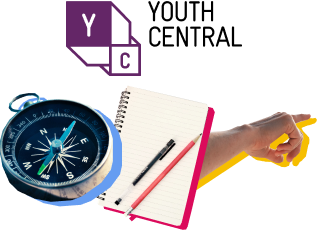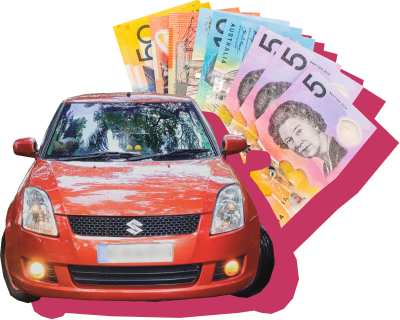Besides purchasing a house, purchasing a car will likely be one of the biggest financial decisions you make.
You might have dreams of buying something special. But there are plenty of things to consider before purchasing a car.
First, when buying a car, there are more costs that just the car itself.
You’ll need money for petrol, registration, insurance, parking, road tolls, annual services, and any other unexpected costs like a car breakdown.
4 million
cars are registered in Victoria
How do I purchase a car?
Before purchasing a car, there are a few things you should do:
- Establish a budget of how much you are willing and able to spend on a car.
- Start doing some research on what cars are within your budget and will fit your needs.
- Consider whether you want to buy a second-hand or brand new car.
- Decide whether you want to purchase a car from a licensed motor dealer, private seller or a car auction.
- If purchasing from a private seller, aim to get an inspection of the car performed by a trusted mechanic.
- Once purchased, get car insurance before you drive your car away.
Should I use my savings or get a car loan to buy a car?
If you can, your best option is to save the money first, then pay for a car without borrowing anything.
Saving money first will mean you won’t have to pay any interest on your car and all your money will go toward the cost of the car.
If you really need a car immediately, especially if your work requires one, then a car loan might be your only option.
If you need to get a car loan, it’s in your best interest to save as much as you can for your deposit before getting a loan. This will reduce the cost of the loan and mean you will be paying less interest over the life of the loan.
What is interest?
Interest is extra money you pay whenever you borrow money. It means you’ll end up paying more than what you originally borrowed.
What should I be aware of when getting a car loan?
Let’s say you want to take out a $15,000 loan to help you purchase your car. After looking at how much you earn, the bank or financial lender may only not offer you the full amount.
And if they don’t think you can pay it back at all, your loan won’t get approved.
Second, you may borrow $15,000, but over the course of the loan, you may end up paying closer to $23,000. This is because you also need to pay interest.
Let’s say the interest rate is 10%. You’ll pay $1,500 to the bank in the first year just for having the loan. The interest doesn’t help you pay off the loan! You’re paying the bank extra money.
These are just two reasons why car loans aren’t as simple as they seem. You may not get as much as you want to start with, and you end up paying more in the end than you borrowed.
Before you get a loan, think about your options
- If you can, always try and purchase a car with your savings to avoid needing to take a loan out in the first place.
- Consider a less pricey option if it helps you to avoid a big loan. Then you can set yourself up to save for your dream car.
- If you need a loan, put down the largest deposit you can to help you avoid a big loan that will charge lots of interest.
- Understand the total cost of the loan, including the total interest you will be paying. Also consider the ongoing cost like registration, fuel and insurance.
I wish I focused more on saving first than getting a car loan.
Where to get a car loan
If you have understood the additional costs of car loans and still think it is a good option for you, there are a few couple of ways to you can get a car loan.
First, try your bank. This is sometimes the simplest option, as they already have access to a lot of your personal and financial information.
But your bank may also not have the best deal on interest rates and fees.
Second, if purchasing from a car dealership, they may offer some finance options. Be aware though, these options may cost more compared to offers from banks or finance brokers.
Third, you can access a finance broker. They can help you look at the best options for you, across different banks and lenders. But they will also charge a fee.
A great way to start is to use a loan calculator which will help you get an idea of what you might be able to afford before you even apply for a loan.
Secondhand dealerships usually have more warranty protections in place if you buy from them rather than from a private seller.
Documents you’ll need to apply for a loan
- Proof of ID (you must be 18 or over), driver’s license or birth certificate
- Proof of income (usually your last 2-3 payslips or your employment contract showing your income)
- Bank statements (usually last 3 months)
- List of current living expenses, transport, rent, food or bills
- Other debts you have
- List of assets you own
What is an asset?
Assets are things of value such as another car, or a house. They may ask you for an estimate of the value of your possessions, such as household items.
Paying back your loan
Depending on your bank or financial lender, they might tell you how long you have to pay off the loan, or they may ask you how long you would like.
Car loans are often between 1-7 years. But the longer the duration of the loan, the more money you will pay due to interest and fees.
Don’t put yourself under too much financial stress. A cheap, reliable car may be all you need!
Late payments
Things happen and you might miss making a payment on time.
You will most likely be charged a late fee and your bank or financial lender will probably contact you to ask when you will be making the payment.
Remember, if you have lots of late payments or missed payments, they stay on your credit history. This could affect your ability to apply for a home loan or credit card in the future.
What is a credit history?
A credit history is a record of every debt you’ve ever had. If you’re good at paying back money one time, you will have a good credit history. If you’re not good at paying back money on time, you could end up with a bad credit history, and banks may not loan to you again.
Who owns the car?
When you apply for a car loan the bank will use the car as something called ‘collateral’.
This means, if you suddenly stopped making your repayments for a period of time, the bank technically owns your car. So they may come and take your car (‘repossess’ it) to cover the cost of the loan.
This only happens after a prolonged period of time of not making payments. But you don’t want this to happen. So it is always important to communicate with your bank if you can’t make a payment (as with any other bill).
Other costs to consider
Remember all the other financial expenses of owning and running a car. Things like petrol, insurance, maintenance, tolls, registration, and parking.
The Moneysmart cars app is a great way to work out the real cost of buying and running a car.
Shop around for a car insurance deal before you buy a car. You should have car insurance before you pick up your car after you’ve bought it. A car accident can happen at any time.
Make sure the car you buy is safe to drive
It’s important to make sure the car you buy is safe, reliable and doesn’t have any debt owed by the previous owner.
To check the car is safe and reliable:
- Before someone sells their car, they should obtain a roadworthy certificate which shows that a licensed vehicle tester has inspected the car to make sure it is safe to drive on the road. Never offer to get the roadworthy certificate done yourself – that’s the responsibility of the seller.
- You can check the safety of new and used cars on the Australian market on the TAC’s ‘how safe is your car’ website.
- Don't buy a car if the seller won't let you check it out thoroughly. When buying from a private seller or a licenced trader you can also test the car by taking it for a drive.
- You may wish to get the car inspected by a mechanic you trust. This could reveal problems the car has or might develop in the near future. This gives you a better understanding of the car being mechanically reliable (compared to a roadworthy certificate).
To check the car doesn’t have debt attached to it:
- Before buying a used car you can buy a VicRoads Vehicle Report, which will give you key information about the car, including a financial liability check – this is to make sure the previous owner doesn’t still owe money on the car. If there is any debt owed, avoid buying it.
Consumer Affairs Victoria has further advice on how to buy safely from a private seller.
Things to look out for
- The amount of interest you will need to pay per month (this is what the bank or financial lender charges you for the benefit of having the loan)
- Any other additional fees per month
- Do you have the option to pay off the loan earlier if you want to? And does the bank or financial lender charge extra fees if you do?
- If the loan is through a bank, do they have requirements on how old the car can be?
Remember:
- Do your research
- Use a loan calculator
- Make sure you read any contracts thoroughly
- Ask someone you trust to read over any contracts
- Have your documentation ready
- Don’t get pressured into anything you don’t think you can afford.

Ready to put your skills into practice?
Get comprehensive guidance on buying a car at Youth Central.




